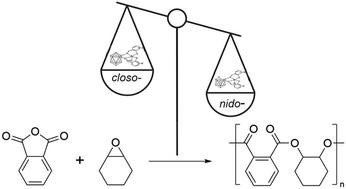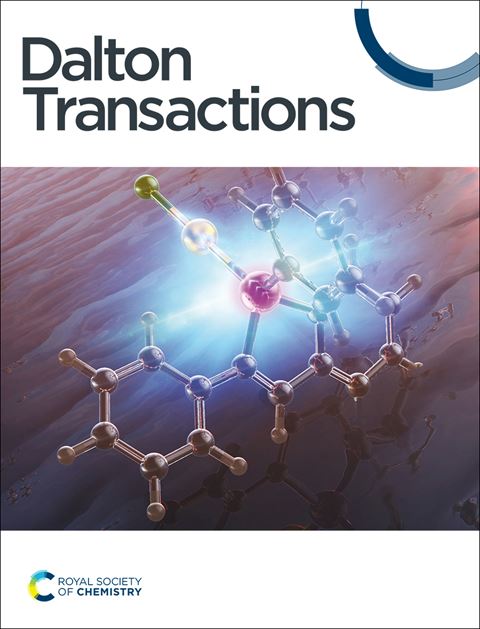A comparative study on nido- and closo-carborane supported zinc-salen catalysts for the ROCOP of epoxides and anhydrides†
IF 3.3
3区 化学
Q2 CHEMISTRY, INORGANIC & NUCLEAR
引用次数: 0
Abstract
Nido- and closo-carborane supported Zn–salen complexes (2–4) were prepared. The nido-C2B9 carborane anion supported Zn–salen complexes are superior to the closo-carborane supported ones in ROCOP of epoxides and anhydrides. These findings show the importance of electronic effects in the backbone of the salen ligands and offer guidance for future catalyst design.

环氧化物和酸酐ROCOP反应中氮氧基和近碳硼烷负载锌-salen催化剂的比较研究。
制备了Nido-和紧密碳硼烷负载的Zn-salen配合物(2-4)。在环氧化物和酸酐的ROCOP中,nido-C2B9碳硼烷负离子负载的Zn-salen配合物优于相近碳硼烷负载的配合物。这些发现显示了电子效应在salen配体骨架中的重要性,并为未来的催化剂设计提供了指导。
本文章由计算机程序翻译,如有差异,请以英文原文为准。
求助全文
约1分钟内获得全文
求助全文
来源期刊

Dalton Transactions
化学-无机化学与核化学
CiteScore
6.60
自引率
7.50%
发文量
1832
审稿时长
1.5 months
期刊介绍:
Dalton Transactions is a journal for all areas of inorganic chemistry, which encompasses the organometallic, bioinorganic and materials chemistry of the elements, with applications including synthesis, catalysis, energy conversion/storage, electrical devices and medicine. Dalton Transactions welcomes high-quality, original submissions in all of these areas and more, where the advancement of knowledge in inorganic chemistry is significant.
 求助内容:
求助内容: 应助结果提醒方式:
应助结果提醒方式:


